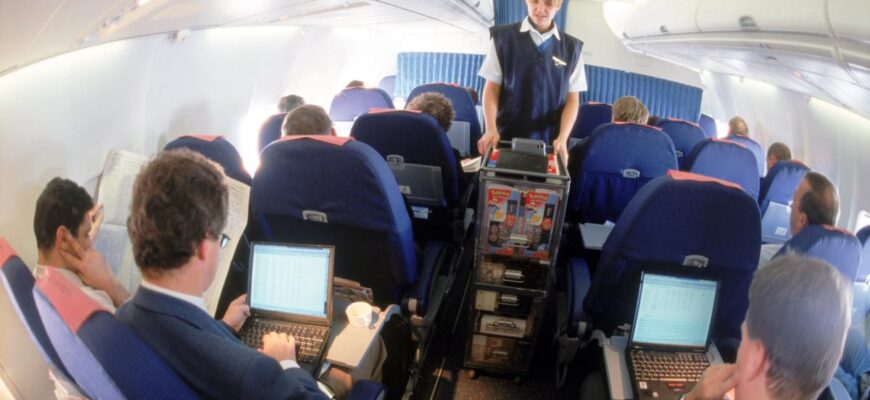The aviation industry in Russia is tallying the costs after a chaotic period on July 5th and 6th saw widespread flight cancellations and delays cripple air traffic across the country`s airports. Initial estimates suggest the disruption could amount to billions of rubles in losses for airlines. The gridlock left countless passengers frustrated and facing significant challenges, from navigating immense queues for information to dealing with drastically inflated prices for rebooking.
According to data compiled by Rosaviatsia, the federal air transport agency, the scale of the disruption was substantial. Between July 5th and the morning of July 7th, a total of 485 flights were cancelled, 88 were diverted to alternate airports, and nearly 2,000 experienced delays. This operational collapse resulted in airlines processing a reported 43,000 forced ticket returns within that timeframe.
For those caught in the middle, the experience was often one of confusion and exasperation. Maria, a resident of Moscow, shared her ordeal after her flight from Sheremetyevo to Ufa was subjected to multiple delays over 12 hours before ultimately being cancelled. Navigating the packed airport terminals and queuing for hours, she finally reached the Aeroflot ticket desks hoping for a resolution. She described the scene as “absolute collapse,” with passengers overwhelmed by a lack of clear communication. While airline staff confirmed she was eligible for a 100% refund for the cancelled segment from Moscow, she was told she would need to purchase a new ticket for a subsequent flight herself. “For those whose ticket from Moscow to Ufa, for example, cost 7,000 rubles, and tomorrow it costs 40,000 – that`s very burdensome,” Maria noted, highlighting the financial shock of having to rebook at peak prices.
A similar tale of travel woe came from Alena at Pulkovo airport. Her online flight information showed a cancellation, yet the airline`s hotline indicated the flight was still operating, compelling her to travel to the airport. Upon arrival, she encountered what she termed “apocalypse” – a terminal swamped with people, served by minimal staff. Obtaining a necessary stamp on her ticket to prove the cancellation was the first hurdle for initiating a refund. Rebooking options were theoretically available, but came with the prospect of queues reportedly stretching beyond six hours. Faced with the bleak reality of direct flight availability and exorbitant costs via online aggregators, Alena and her companion decided to buy new, expensive tickets for a flight several days later, extend their hotel stay, and brace themselves for the lengthy process of claiming a refund.
Estimates circulating suggest the financial impact of this weekend`s travel chaos on Russian airlines could reach approximately 20 billion rubles. Airlines, including Aeroflot, have publicly stated that affected passengers can receive a full refund or rebook on a similar flight within ten days at the original fare. However, the practical implementation of these options for many appears challenging.
Eduard Shalonosov, a legal expert specializing in tourism, offered a rather direct assessment of the refund situation. “They will return the money for a long time,” he predicted. He explained that airlines typically pay out various airport and service fees, potentially amounting to 25-30% of the ticket price, regardless of whether the flight takes off. Refunding the full ticket value means returning funds already spent. While the standard processing time is stated as 30 days, Shalonosov added, with a hint of resignation, “They may not return it – you`ll have to go to court.” He then delivered the ironic punchline: “And they return it immediately after receiving the statement of claim [in court].” A somewhat inefficient customer service model, it seems, where legal action becomes the most effective channel for redress.
As airlines work to restore order to their schedules, the aftermath of the July air traffic collapse serves as a stark reminder of the vulnerabilities inherent in complex transport systems. Beyond the significant financial hit to carriers, the personal cost to thousands of travelers – in time, money, and stress – underscores the wide-reaching impact of widespread operational failure. The official promises of refunds and rebooking, while necessary, offer little immediate comfort to those left scrambling for costly alternatives, paying a tangible price for the intangible chaos.








